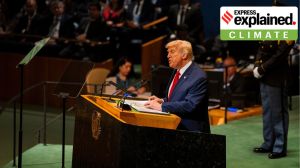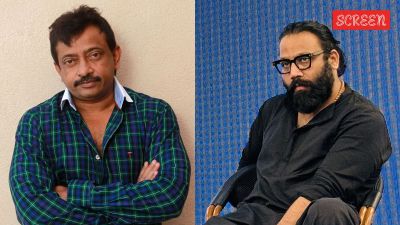The special bench of Justices Anil S Kilor and Shyam C Chandak questioned the trustworthiness of certain prosecution witnesses and the Test Identification Parade (TIP) of some of the accused. The bench ordered their release, if they are not required to be detained in any other case, and directed all of them to execute personal bonds of Rs. 25,000 each.

Finding substance in the case of defence lawyers, the bench observed that the prosecution “utterly failed to establish the offences beyond a reasonable doubt against the accused on each count.”
The bench led by Justice Kilor held, “It is unsafe to reach the satisfaction that the appellant accused have committed the offence for which they have been convicted and sentenced. Therefore, the accused judgment and order of conviction and sentence are liable to be quashed and set aside”
Here’s full judgment of 2006 Mumbai train blasts
There were 13 accused, of whom one was acquitted by the special court under the Maharashtra Control of Organised Crimes Act (MCOCA). Of the 12, five were sentenced to death, one of whom died in prison during the pandemic, and seven were awarded a life term.
The special bench passed the judgement over five months after it concluded the hearing on January 31. The Bombay High Court had conducted hearings over the span of six months from July last year.
Mumbai train bombings and the case
A series of bombs exploded on seven western suburban coaches, killing 189 commuters and injuring 824 on July 11, 2006. After an over eight-year trial, the special court under the MCOCA awarded the death penalty to five of the convicts, and life terms to seven others in September 2015.
Story continues below this ad
The death sentences were awarded on charges of spreading terror, organised crime, criminal conspiracy and murder under the Unlawful Activities Prevention Act (UAPA), Explosives Substances Act, 1908, MC OCA, Indian Penal Code (IPC) and Railways Act, 1989.
The convicts are lodged at various prisons across the state, including Yerawada and Amravati central jails, for over 18 years. They filed the pleas after they were convicted by the special court, and the matter had been pending since then.
There were 250 witnesses, including 92 prosecution witnesses, and the evidence in the case spanned over 169 volumes, and the judgments of death sentences of nearly 2,000 pages.
Five convicts awarded the death penalty are Kamal Ahmed Mohd Vakil Ansari from Bihar, Mohammad Faisal Ataur Rahman Shaikh from Mumbai, Ehtesham Qutubuddin Siddique from Thane, Naveed Hussain Khan from Secunderabad, and Asif Khan Bashir Khan from Jalgaon in Maharashtra. All of them were found guilty of planting the bombs.
Story continues below this ad
Tanveer Ahmed Mohammed Ibrahim Ansari, Mohammed Majid Mohammed Shafi, Shaikh Mohammed Ali Alam Shaikh, Mohammed Sajid Margub Ansari, Muzammil Ataur Rahman Shaikh, Suhail Mehmood Shaikh, and Zameer Ahmed Latifur Rehman Shaikh were awarded life terms. One of the accused, Wahid Shaikh, was acquitted by the trial court after spending nine years in jail.
Maharashtra Govt vs defence
In 2015, the Maharashtra Government approached the Bombay High Court with pleas seeking confirmation of the death penalty granted to five convicts in the 2006 Mumbai train bombings. On the other hand, the convicts filed appeals challenging the special court order.
As the convicts sought speedy disposal of the matter, which had been pending since 2015, the HC in July 2024 constituted a special bench led by Justice Kilor, which conducted regular hearings through more than 75 sittings over the span of six months.
Senior lawyer S Muralidhar (former Delhi HC judge), Senior Advocates Nitya Ramakrishnan and S Nagamuthu, along with Advocates Yug Mohit Chaudhry and Payoshi Roy, represented the convicts, whereas Senior Advocate Raja Thakare, appointed as special public prosecutor (SPP), appeared for the Maharashtra Government.
Story continues below this ad
The lawyers representing the convicts argued that their “extra-judicial confessional statements” obtained by the Maharashtra Anti-Terrorism Squad (ATS) through “torture” were inadmissible under the law.
They also argued the convicts were falsely implicated, innocent, and were languishing in jail for 18 years without substantial evidence, and their prime years were gone in incarceration. They said the trial court erred in convicting them, and, therefore, the said order set aside.
On its part, the Maharashtra Government opposed the appeals by the convicts, claiming the probe agency provided sufficient evidence to establish it was a “rarest of the rare” case to sentence the accused to the death penalty.









